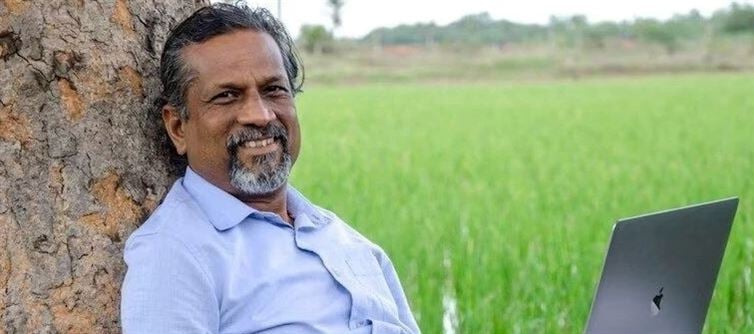
💥 “Learn kannada or Marathi or Stay Silent?” — Zoho CEO’s Explosive Statement Sparks India-Wide Debate on language Pride & Cultural Survival 💥
When Zoho’s maverick CEO Sridhar Vembu speaks, the tech world listens. But this time, his words weren’t about AI, startups, or SaaS — they were about identity, pride, and respect. His simple message — “Learn kannada and Marathi if you move to karnataka or Maharashtra. We need to promote indian languages.” — has ignited a fiery nationwide discussion on linguistic nationalism, tech elitism, and what it really means to “belong” in a multilingual country like India.
Below, we break down the storm he’s unleashed — with brutal honesty, unfiltered truths, and a reality check for every migrant, CEO, and keyboard warrior.
In an era where India’s startup world worships global expansion and english fluency, Sridhar Vembu just did the unthinkable — he pulled everyone’s focus back to the roots. His statement wasn’t just about languages — it was a slap to urban arrogance and a love letter to cultural respect.
While half of india hailed him as a patriot promoting regional harmony, the other half accused him of linguistic chauvinism. But no matter which side you’re on — Vembu just forced us all to confront an uncomfortable truth: Do we love india, or just our convenience?
⚖️ THE GOOD, THE BAD, AND THE BRUTAL TRUTH ABOUT VEMBU’S STATEMENT
✅ THE PROS: Why He’s Absolutely Right
Respect the Roots: Learning the local language isn’t just courtesy — it’s respect in action. It tells locals, “I’m here to live with you, not over you.”
Cultural Integration > corporate Comfort: India’s diversity isn’t meant to be ignored — it’s meant to be embraced. language bridges emotion faster than english can.
Economic Power of Language: From regional cinema to small-town markets, local language literacy can unlock massive untapped business potential.
Tech Shouldn’t Kill Tradition: By urging professionals to go native, Vembu is pushing back against the Silicon Valley copycat culture that’s erasing indian authenticity.
National Pride, local Voice: Promoting indian languages revives pride in our civilizational identity — reminding us that progress doesn’t need to come with pronunciation.
❌ THE CONS: The Flip Side No One Wants to Admit
Impractical Expectation: india has 22 official languages and 120+ spoken tongues. Can we realistically expect professionals to learn every state’s dialect they move to?
Cultural Policing in Disguise: For some, Vembu’s statement feels like a slippery slope — from “learn the language” to “you don’t belong if you don’t.”
Corporate Diversity Dilemma: In global workplaces, english is the bridge — enforcing regional languages may alienate non-natives and reduce inclusivity.
Digital Divide: With AI tools translating speech in real time, forcing language learning may feel outdated in a hyper-connected world.
Political Hijack Risk: Regional parties may twist such sentiments into divisive identity politics — turning a message of respect into a tool for exclusion.
⚔️ THE REALITY CHECK: What india Needs Now
Vembu’s comment hits where it hurts — not in politics, but in our attitudes. For too long, “English-speaking India” has looked down on “vernacular India.” Maybe this isn’t about kannada or Marathi at all. Maybe it’s about humility vs. hierarchy — a reminder that language is not just communication, it’s connection.
💬 FINAL TAKE:
You don’t need to speak perfect kannada to live in Bengaluru.
You just need to care enough to try.
And maybe that’s all sridhar Vembu ever meant.




 click and follow Indiaherald WhatsApp channel
click and follow Indiaherald WhatsApp channel